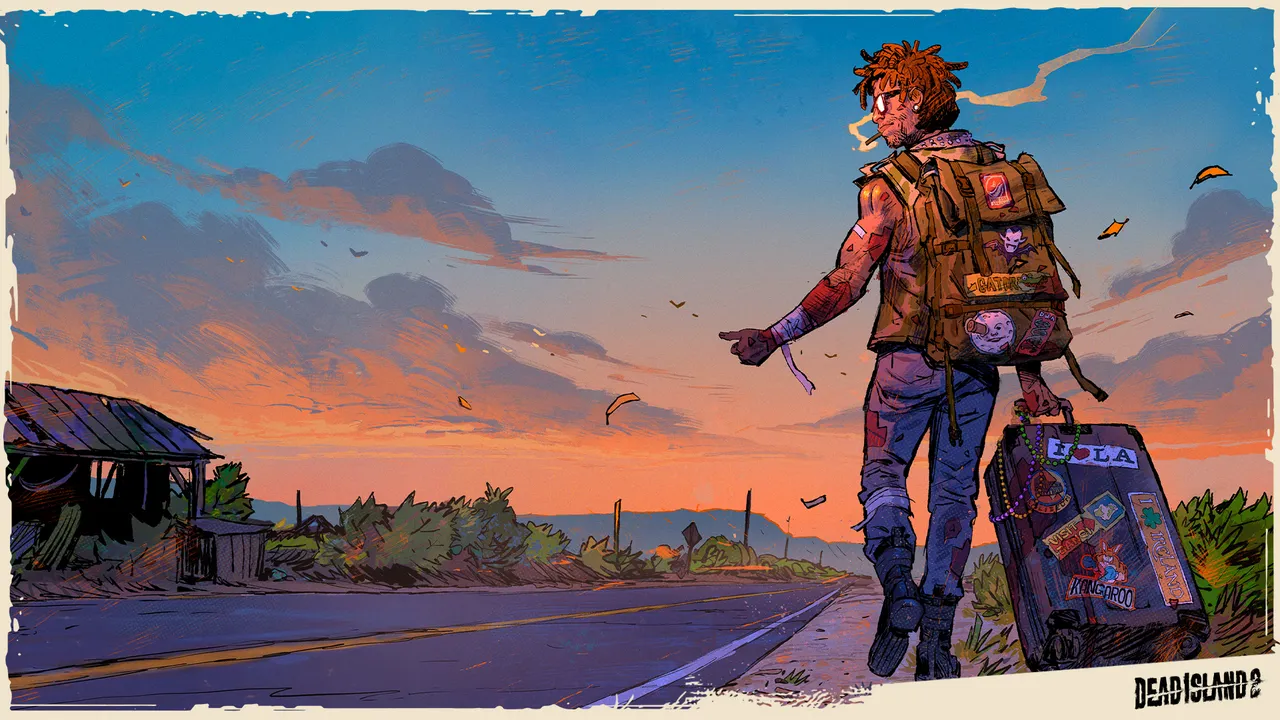By David Hennessy
Copyright theirishworld

Playwright and poet Damian Gorman told David Hennessy about BOY, an evening of music and poetry telling the story of Damian’s abused brother, Gerard Gorman.
Gerard Gorman is the person who named Malachy Finegan, the most prolific paedophile priest known about in the history of the Catholic church in Ireland.
In telling his story- and struggling for justice for himself and others- Gerard encouraged others to come forward.
With the help of his poet and playwright brother Damian, Gerard has already told his story in the book, So Young- The Taking of my Life by the Catholic Church.
Now Damian has joined with the well known musician Leonard Barry to present BOY, a night of music and poetry based on a story of national significance.
Damian Gorman told The Irish World: “As you can imagine, it’s a very strange one for me.
“Anybody who knows me would know me as a poet but I write plays as well.
“The last big thing I did was the story of the lives of John and Pat Hume which we did a wee while ago in The Guildhall in Derry.
“That was an amazing thing to be part of but, of course, this is different.
“This is my own brother’s story.
“As well as doing my work as a poet and my work with Leonard, I have to look after my brother in the telling of the story.
“Of course he’s completely behind it, otherwise it wouldn’t be happening.
“A couple of years ago I was commissioned by the Blackstaff Press in Belfast to write his story.
“He is the person who named Malachy Finegan who is the most prolific abusing priest in the history of the Irish Catholic Church, at least the most prolific one known about.
“And Gerard named him and when he decided to speak, it wasn’t edifying the way he was treated.
“Gerard was only at the school for one year.
“He refused to go back.
“He just simply refused to go back.
“And it was only him and me living at home at the time, the younger ones were all with me mother and my father was a very, very violent man.
“Gerard just refused to go back and I was thinking, ‘Jesus Christ, he’s going to kill him’ not in a metaphorical way, he’s going to kill him.
“But he just stood, ‘Yeah, grand, you can do what you want, I am not going back there’.
“And he didn’t say what it was, there was some talk about bullying.
“It was many, many years later that he found the way to begin to speak about it and that took time.
“But I remember the tension of him saying, ‘Dad, do what you want, do what you want, I can’t go back to that place’.
“There was an attempt to get him to sign non-disclosure things and all that type of stuff and he said, ‘Well, it’s taken me 40 years to speak and it’s not easy for me to speak and you’re saying to me before there’s any kind of redress you want me to sign something to say I’ll be quiet, and I won’t be quiet’.
“I’m very conscious of his vulnerabilities.
“I was around at the time.
“I didn’t know what was going on.
“None of us knew what was going on but I was around so it is a very particular piece for me to try and do it right, to try and do what Gerard wants it to do.
“His belief is that the clear, truthful telling of his story, difficult and all as it is, might keep harm away from somebody.
“That’s the reason he’s doing it.
“It’s not easy.
“It takes it out of him but he’s prepared to do it and he’s prepared to do it for that reason, that it might keep harm off somebody, the very clear telling of what happened to him and of his struggle for some kind of redress, some kind of justice which is some story.
“So although we told that story in the book, he felt that there was more to be said.
“He wondered, and would still wonder, how much has really changed in terms of how the Catholic Church treats people who come forward.
“The language has changed, I’m speaking now for Gerard, but how much else has changed?
“The way that he was treated did nobody any credit, it really didn’t so part of this for me is to look after him in the process.
“He’s my brother and the number one thing is to look after him.
“We are doing this in theatres so we’re not doing this in kind of purgatorial centres where people go because it’s good for them.
“It’s an hour of music and poetry and the telling of a story and we have to do that in such a way that it isn’t purgatory, that it is bearable.
“There is no point in me and Leonard Barry doing something that leaves people in bits.
“There’s no point in that.
“What’s the point in inviting people into a space, they have to get babysitters, they have to arrange travel, they have to purchase a ticket and then we’re going to leave them in bits.
“So part of what we’ve been working on with this is, ‘How do we tell the story? How do we be clear? How do we be truthful? And how do we do it in such a way that people can walk out of the Irish Cultural Centre, the Linen Hall Library, the Hawk’s Well Theatre, intact?’
“People can walk out under their own steam, if anything somehow enhanced by the time they spent with us and with this story.
“It’s a very, very real issue.
“It has a devastating experience at its core, something that happened to a very young, very small 11 and 12 year old boy who was in a particular family situation where he was very vulnerable.
“Our parents had split up and he came into the orbit of this man who took his time and would approach him, ‘Are you okay? You seem a bit upset. You know anytime you need somebody, you come to me. I’ll give you my key. You can go into my room when you’re lonely..’.
“You know, that kind of evil psychopathic genius: Took his time and then crossed the line that our Gerard didn’t even know was there, didn’t know what was happening to him and what was happening to him was rape.
“That is at the core of this and then the struggle to speak, to learn how to speak about this having happened, to find the words and then the struggle for justice, which was not easy.
“I mean the very first thing he was asked to do when he decided to speak about it and to take a case about it was prove he had ever been in the school at all.
“There was never any sense ever of the church moving towards him saying, ‘Oh God, this is terrible but we’ll look after you, it’s a new day’.
“That was never the case in his experience.
“When he did the book, I was trying just to help him shape it.
“It’s different this time because I’m a poet.
“That’s my instrument if you like, the lyric poem and the idea came about we could retell the story but we could do it differently.
“We could tell it with two instruments, uilleann pipes which is Gerard’s favourite instrument and mine, which is the lyric poem, and we could increase its reach and we could do something that’s maybe unique.
“It’s a devastating experience at the core of this story but we don’t want to devastate people.
“The great thing about the pipes, the great thing about poetry, when it works, is that the music in these things can empty you and fill you up at exactly the same time so they can deal with great sadness and trauma and at the same time, they don’t just take the good out of you, they also can put something back in so we’re bringing the redress of those two things to bear on the telling of this.
“If anybody asked me that question, ‘Why in the name of God would I or anybody belonging to me go out to see this thing?’
“Honestly I would say, ‘Well, number one, are you interested in music? Because here is one of the best musicians in Ireland who’s going to be on stage for an hour’.
“And then I say, ‘Are you interested in poetry?’
“I can’t really say too much about myself but I know that I write from the heart to the heart and I’ve done that for a lot of years.
“I would say, ‘Are you interested in Ireland?’
“If you’re interested in Ireland, this is a big, big thing in our story.
“When we did the book, a huge number of people came forward and spoke for the first time.
“It’s a big part of our story as Irish people.
“And then I suppose I would say, ‘Well, are you interested in theatre?’ Because we still have this forum at a time when people’s right to speak is being cut down and the spaces in which you can say difficult things are being reduced the theatre, the Irish Cultural Centre, Hawk’s Well, New Gate: These are places where you can still approach the seemingly unapproachable and say the things that are difficult to say.
“You can approach things like somebody was in this position that as a very young person, he was abused and not only that but there was a whole thing set in train to protect the abuser and that’s what happened at the time and priests were moved around and all of that.
“So there’s four reasons: Music, poetry, Ireland/ Ireland’s story, theatre.
“But I can say it is bearable, what we’ve done.
“It’s important for me to say this in case there would be somebody in your readership that would think, ‘That has very personal importance for me and I’m half thinking of going but I’m half thinking of not going because it might be too much’.
“Well I would say is I understand that and you’re the only person that can answer that and I wouldn’t try and twist your arm at all.
“There’s a time to speak.
“There’s a time to engage with these things and you know when the time is.
“It’s a very strong piece and it goes everywhere but what there isn’t is explicit detail as there is in the book.
“It’s not that there would be a minefield of very difficult detail and also we’re going to make sure that in each venue this time and whenever we take it out then across the country, there’s always somebody in the room. There’s always a professional person in the room just in case what we’re doing has some kind of triggering effect on someone.
“One thing I’ve learned from Gerard is you never know what a trigger could be.
“It could be anything at all so we’ll make sure that there’s somebody professional in the room who’s available.
“The story has different kind of phases, it has different moods and any opportunity for light we’ve taken.
“If we see any ingredients of light we have gone to them and made something out of them.
“And also there is a sort of redemption in the story.
“It comes full circle.
“There’s an arc to it.
“Any time I write something for the theatre, the question I have in my head from the start is, ‘What note do you want to leave people with? What do you want resonating in people as they leave?’
“In the case of BOY, there is a note of healing and it’s not something that we scrabbled about for.
“I mean, it’s some story.
“Things were done not that long ago in our country and there was an attempt to bury them, literally in the case of Tuam which is in the news again but metaphorically in relation to clerical abuse, priests being moved around and we’re not going back a wild long time.
“The buried things won’t stay buried together.
“The ground will shift by a degree and what was hidden will be disinterred.
“And that, I think, is where we are at and maybe Leonard Barry and myself are part of that, are part of the making visible of some buried things that can’t stay hidden from sight and shouldn’t stay hidden from sight for good.”
Ireland has to face up to its dark past because there are sadly many stories like Gerard’s, aren’t there?
“In the last few minutes of this I would say, and this is me projecting but, you will be in tears.
“Either you believe, I think, as a human being that we belong to each other in some way as human beings and our stories are connected in some way, or you don’t.
“Either you believe that the little tributaries of our own experiences have a point of confluence as human beings or you don’t believe that.
“And increasingly maybe the world doesn’t believe that and I suppose what we’re trying to do is bolster the idea but actually you think that’s not to do with you because it’s about one fella from County Down who in 1970 had this thing, this crime perpetrated on him, ‘What the f**k has that to do with me? What has that to do with me?’
“Well maybe at the end of this hour, you might feel connected to it.”
Has that been the power of the experience since you and Gerard did the book, that you’ve seen the reaction and people starting to talk?
“Yes, as I said the reason for him going public was, it sounds heroic and maybe it is heroic, to maybe help keep harm away from someone.
“Gerard spent his working life as a painter and decorator, not as a poet or a musician or anything like that but there’s an ordinary fella who spoke and who wouldn’t go away and he said, ‘No, I’m going to tell my story and I’m going to tell the truth. And I’m going to do it because I have a reason to do it and the reason is outside of me. I can’t make myself unabused. It happened to me but I can make something out of that so I have a reason’.
“As I said, nobody ever moved towards him and said, ‘Oh, this must be so painful for you’.
“The telling of the story was never an easy thing to do.
“There’s a selflessness to that storytelling.
“I see these people, like my own brother, putting their stories at the feet of other people because it might do some good.
“I said to you that there were two instruments involved in this, my poetry and Leonard’s uileann pipes which are amazing, and lo whistle and tin whistle, but in a way there are three instruments because the other instrument is Gerard’s determination that the story achieved some good.
“That’s a kind of instrument as well that’s at work in this so it’s those three things working together and the two of us, artists if you like, are trying to serve the third one which is the idea that the story should do some good.”
BOY comes to the Irish Cultural Centre on Friday 19 September, for more information and to book, click here.
Damian also presents a free creative writing workshop at The Irish Cultural Centre at 2pm in the afternoon of Friday 19 September. You can reserve your place online.
Damian and Leonard bring BOY to the The New Gate Theatre in Derry on Thursday 25 September. For more information and to book, click here.



